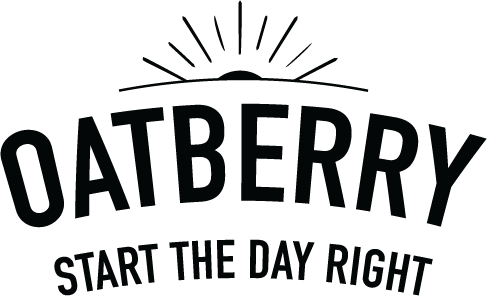
What Is The Best Plant-Based Milk for Granola
Share
Plant-based milks are an excellent alternative to dairy milk, and when paired with granola, they provide a nutritious and delicious combination. With various options available, selecting the best one depends on your individual preferences and nutritional needs.
Almond Milk
Almond milk is widely chosen for its light, mild flavour and low calorie content. It’s a great option for those who want a more delicate pairing with granola, allowing the granola’s flavour to shine without being too heavy.
Nutritional Benefits:
-
Low in Calories: Unsweetened almond milk contains about 30–40 calories per serving, making it a great low-calorie alternative to dairy milk (which has around 150 calories per cup).
-
Rich in Vitamin E: Almond milk is an excellent source of vitamin E, an antioxidant that supports skin health and reduces oxidative stress (Schroeder et al., 2020).

Drawbacks:
-
Low in Protein: Almond milk is not a good source of protein. One cup provides only around 1 gram of protein, which is significantly lower than the 8 grams found in dairy milk. This may not be ideal for those looking to increase their protein intake, particularly in a breakfast or post-workout meal.
-
Environmental Impact: Almond milk production requires a significant amount of water, and its production has been criticized for water usage, especially in drought-prone areas (Mekonnen & Hoekstra, 2017).
Comparison with Dairy Milk:
Almond milk is much lower in calories and protein than dairy milk, which can make it an appealing option for those managing calorie intake or reducing dairy. However, if you need a milk that’s a good protein source, dairy milk is a better option.
Source: Schroeder et al. (2020) - Vitamin E and its role in protecting against oxidative stress
Oat Milk
Oat milk is loved for its creamy texture and naturally sweet flavor, making it an excellent choice for pairing with granola, particularly oat-based varieties.
Nutritional Benefits:
-
Rich in Beta-Glucan: Oat milk is packed with beta-glucan, a soluble fiber that has been shown to lower cholesterol and improve heart health (Bekkering et al., 2016).
-
Heart-Healthy: The beta-glucan in oat milk can help reduce LDL cholesterol levels, making it a great option for those looking to support cardiovascular health.

Drawbacks:
-
Higher in Sugar: Many oat milks on the market are sweetened, and even unsweetened varieties can have natural sugars due to the oat content. A typical serving of oat milk contains around 5–7 grams of sugar, compared to the 12 grams in a typical serving of dairy milk (without added sugar). While it’s natural sugar, it may not be ideal for those trying to minimize sugar intake.
-
Gluten Content: Although oat milk is typically gluten-free, cross-contamination can occur during processing. Those with severe gluten sensitivities or celiac disease should be cautious and look for certified gluten-free oat milk.
Comparison with Dairy Milk:
Oat milk is similar to dairy milk in terms of creaminess and texture, making it a great alternative for those who enjoy a rich, indulgent drink with their granola. However, it has a slightly higher sugar content, which might be a consideration for those monitoring their sugar intake.
Source: Bekkering et al. (2016) - Oat beta-glucan and cholesterol lowering
Soy Milk
Soy milk is often considered the most nutritionally similar plant-based milk to dairy milk due to its high protein content.
Nutritional Benefits:
-
High in Protein: Soy milk contains about 7–9 grams of protein per cup, which is comparable to dairy milk (8 grams per cup). This makes it a great option for those seeking to increase their protein intake.
-
Rich in Isoflavones: Soy milk contains isoflavones, plant compounds that have been linked to improved bone health and may support cardiovascular health (Ho et al., 2018).

Drawbacks:
-
Strong Flavor: Soy milk has a more pronounced, sometimes bean-like flavor, which may not appeal to all palates. It can be an acquired taste for some, particularly when mixed with granola.
-
Potential Allergens: Soy is one of the most common food allergens, which can be problematic for people with soy sensitivities or allergies.
-
Processing: Soy milk can undergo extensive processing, which may affect its nutritional profile, particularly in terms of added sugars or artificial additives.
Comparison with Dairy Milk:
Soy milk is the closest plant-based milk to dairy milk in terms of protein content. While dairy milk may be preferred by those who enjoy a natural, unprocessed taste, soy milk offers a similar texture and nutritional benefits, especially for those seeking higher protein or dairy-free alternatives.
Source: Ho et al. (2018) - Isoflavones and bone health: A comprehensive review of clinical studies
Comparison with Dairy Milk
When comparing plant-based milks to dairy milk, the most noticeable differences lie in their nutritional content and health benefits:
-
Calories: Most plant-based milks, like almond and oat milk, contain fewer calories than dairy milk, which makes them suitable for those looking to reduce caloric intake.
-
Protein: Dairy milk provides more protein than most plant-based milks, except for soy milk, which is comparable in protein content.
-
Sugar: Many plant-based milks (especially oat milk) have higher sugar content, whether naturally occurring or added, while dairy milk also contains lactose, a naturally occurring sugar.
- Nutritional Profile: Dairy milk contains essential nutrients like calcium, vitamin D, and B12. While some plant-based milks are fortified with these nutrients, it’s important to check labels to ensure you’re getting a similar nutrient profile to dairy milk.
The Best Pairing
While all plant-based milks are excellent choices, oat milk stands out as the best pairing for Oatberry’s oat-based granola. As for Oatberry Granola, it has gone through 2 years of R&D to develop our special recipe with the highest benefits, with the lowest sugar (only natural sugars) and delicious taste and flavour. The smooth, creamy texture and complementary flavors make it an ideal match, offering both deliciousness and nutrition in every bite.
In conclusion, the best plant-based milk for granola depends on personal preferences. Oat milk pairs beautifully with Oatberry’s granola, creating a wholesome and satisfying meal.
- Source: Healthline explains the benefits of various plant-based milks, especially oat milk, which pairs well with granola.
-
Source: Medical News Today discusses different plant-based milk options and the benefits of oat milk, especially for heart health.
